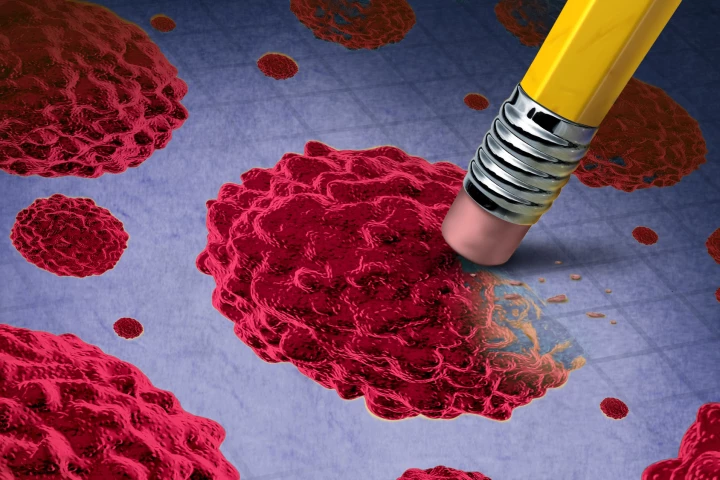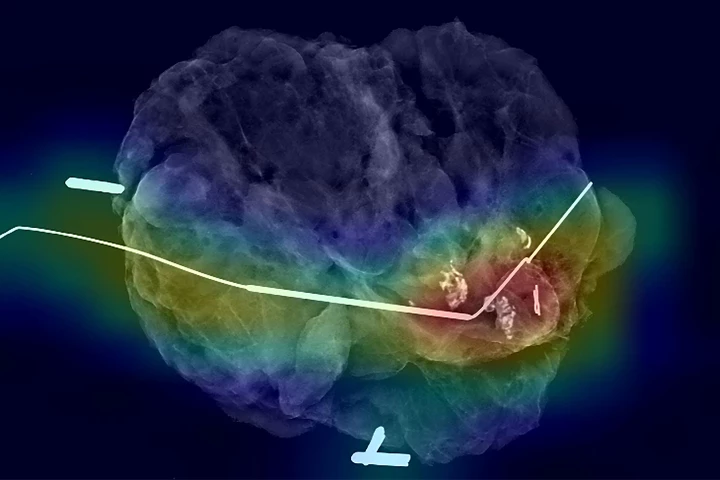Breast cancer
-
One of cancer’s deadliest tricks is its ability to spread to other organs. An existing cardiac drug has now been found to reduce the risk of metastasis by dissolving circulating clusters of breast cancer cells in patients.
-
A phase 3 clinical trial has shown that adding an immunotherapy drug to chemotherapy almost doubled the cure rate for patients with the most common kind of breast cancer. The findings suggest that a new treatment paradigm should be adopted.
-
A new study has identified one of the reasons why cancer frequently spreads from elsewhere in the body to the lungs: an amino acid called aspartate. The findings improve our understanding of cancer and open the door to new treatments for metastatic disease.
-
Manuka honey reduced breast cancer cell growth by 84% without harming healthy cells or causing major side effects, according to preliminary studies. The findings open the door to developing a natural, non-toxic supplementary, or potentially stand-alone, anticancer treatment.
-
Researchers identified the cells that can lead to breast cancer in women with mutated BRCA2 gene and uncovered their vulnerability. Targeting them with an existing drug slowed tumor progression, opening the door to a new breast cancer prevention strategy.
-
Being diagnosed with potentially fatal metastatic breast cancer inspired one man to gather a team of diverse professionals to create an AI-based tool to help oncologists provide an individualized treatment care plan to patients with metastatic cancer.
-
Researchers have found that a drug used to treat the symptoms of Parkinson’s disease may be effective at treating metastatic breast cancer and the brain metastases that can often result. The repurposed drug could be a novel cancer treatment.
-
Researchers have uncovered a protein that facilitates the spread of breast cancer cells into healthy tissue. The discovery improves our understanding of the metastatic process and is the first step to developing treatments that target this mechanism.
-
New research has linked long-term exposure to fine particle air pollution, whether at home or work, to an increased risk of breast cancer. It adds to mounting evidence about the dangers of air pollution and highlight the need to reduce it.
-
Researchers have developed a prototype robot that is able to perform a breast examination and sense lumps that may indicate cancer. While still in the early stages, they say their robot could improve the likelihood of catching breast cancer early.
-
Researchers have developed an AI model that can predict in real-time whether a surgeon has removed all cancerous tissue during breast cancer surgery. The model performed as well as, or better than, human doctors.
-
A new study found that a single radiologist screening mammograms picked up more incidents of breast cancer when supported by AI. The researchers say an AI-supported approach would be a safe alternative to having two radiologists read the scans.
Load More











